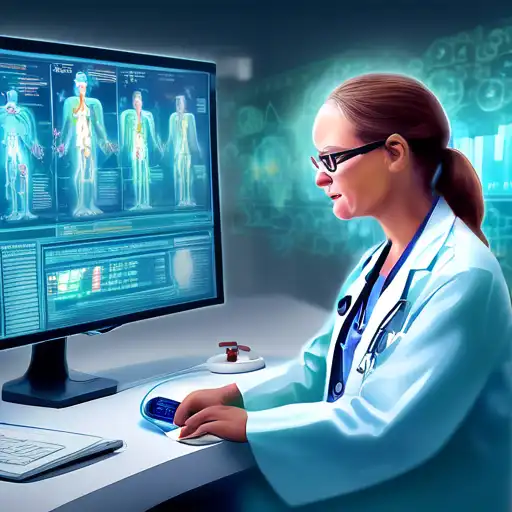The Power of Big Data in Transforming Healthcare
In the digital age, big data has emerged as a cornerstone in revolutionizing industries, with healthcare standing at the forefront of this transformation. By leveraging vast amounts of data, healthcare providers can now offer personalized care, predict outbreaks, and improve patient outcomes like never before.
Understanding Big Data in Healthcare
Big data in healthcare refers to the massive volumes of information generated by digital technologies that collect patient records, manage hospital performance, and track healthcare trends. This data, when analyzed, can reveal patterns and insights that were previously inaccessible.
Benefits of Big Data in Healthcare
- Personalized Patient Care: By analyzing patient data, healthcare providers can tailor treatments to individual needs, improving effectiveness and reducing side effects.
- Predictive Analytics: Big data enables the prediction of disease outbreaks and patient admissions, allowing for better preparedness and resource allocation.
- Enhanced Drug Development: Data analysis can accelerate drug discovery and reduce costs by identifying potential treatments more efficiently.
- Operational Efficiency: Hospitals can use data to optimize staffing, reduce wait times, and improve overall patient satisfaction.
Challenges and Solutions
Despite its potential, the integration of big data in healthcare faces challenges such as data privacy concerns and the need for skilled personnel. However, with robust cybersecurity measures and ongoing training, these obstacles can be overcome.
Future Prospects
The future of big data in healthcare is bright, with advancements in AI and machine learning paving the way for even more innovative applications. From wearable technology to genomic sequencing, the possibilities are endless.
For more insights on how technology is shaping healthcare, explore our articles on Health Informatics and Medical Technology.
Conclusion
Big data is transforming healthcare by improving patient outcomes, enhancing efficiency, and driving innovation. As technology evolves, so too will the ways in which we harness data for the betterment of health and wellness worldwide.
